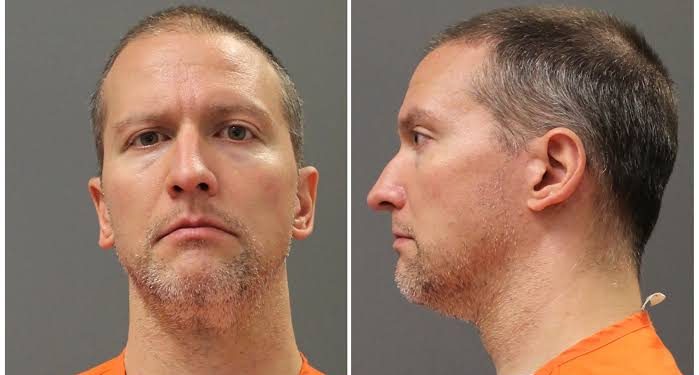By John Ikani
Derek Chauvin, the former police officer who killed George Floyd on a Minneapolis street last year, was sentenced Friday to 22 and half years in prison.
The punishment — which fell short of the 30 years that prosecutors had requested — came after Chauvin broke his more than yearlong silence in court to offer condolences to the Floyd family and say he hopes more information coming out will eventually give them “some peace of mind.”
Under Minnesota law, Chauvin will have to serve two-thirds of his sentence, or 15 years — and he will be eligible for supervised release for the remaining seven and a half years.
Chauvin, 45, was convicted in April on charges of second-degree unintentional murder, third-degree murder and second-degree manslaughter for his role in Floyd’s death.
He was captured on camera pressing his knee against Floyd’s neck for up to 9 1/2 minutes as the 46-year-old Black man gasped that he couldn’t breathe and went limp on May 25, 2020.
Bystander video of Floyd’s arrest on suspicion of passing a counterfeit $20 bill at a corner store prompted protests around the world and led to scattered violence in Minneapolis and beyond.
With Chauvin’s sentencing, the Floyd family and Black America witnessed something of a rarity: In the small number of instances in which officers accused of brutality or other misconduct against Black people have gone to trial, the list of acquittals and mistrials is longer than the list of sentencings after conviction.
In recent years, the acquittals have included officers tried in the deaths of Philando Castile in suburban Minneapolis and Terence Crutcher in Tulsa, Oklahoma. Two mistrials were declared over the death of Samuel Dubose in Cincinnati.
Floyd’s sister, Bridgett, who founded the George Floyd Memorial Foundation, said in a statement that the sentence “shows that matters of police brutality are finally being taken seriously.”
“However, we have a long way to go and many changes to make before Black and brown people finally feel like they are being treated fairly and humanely by law enforcement in this country,” she added.
Floyd family attorney Ben Crump, in a statement, said the “historic sentence” brings the family and nation “one step closer to healing by delivering closure and accountability.”
“With Chauvin’s sentence, we take a significant step forward — something that was unimaginable a very short time ago,” he said.




































